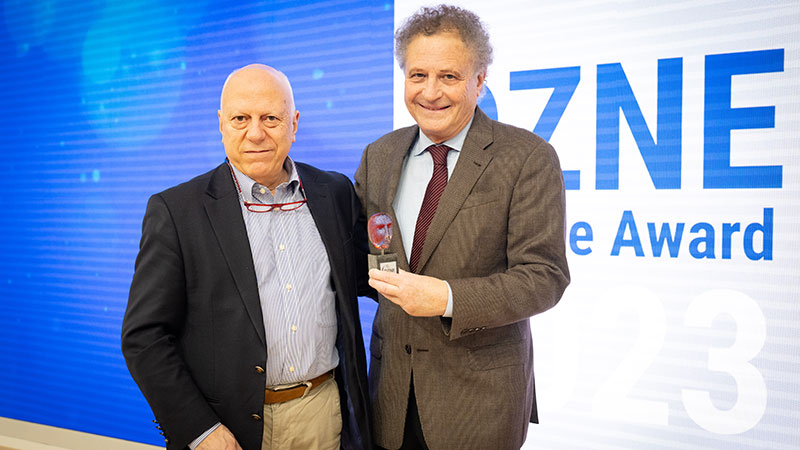
Stuart Lipton, MD, PhD, professor and Step Family Foundation Endowed Chair in the Department of Molecular Medicine, is the recipient of the 2023 Lecture Award from the Deutsches Zentrum für Neurodegenerative Erkrankungen (DZNE). The award honors scientists who have rendered outstanding service in the field of neurodegenerative diseases.
Lipton studies the biochemical and molecular events that may underlie neurodegeneration, including a chemical reaction called protein S-nitrosylation. This occurs when a nitric oxide (NO)-related molecule binds tightly to a sulfur atom (S) on a region of proteins to form a modified “SNO-protein.” Protein modifications by small clusters of atoms such as NO are common in cells and typically activate or deactivate a target protein’s functions. “SNO-storms” of these proteins could be a key contributor to Alzheimer’s and other neurodegenerative disorders.
Most recently, the lab has been studying why these chemical modifications may occur at much higher levels in the brains of women compared to men. At the DZNE awards ceremony in Bonn, Germany, Lipton gave a prize lecture on “‘SNO-Storms’ in Female Human Brains Result in Alzheimer’s Disease Predominance in Postmenopausal Women.“
Akin to the National Institutes of Health (NIH), the DZNE represents the German Centers for Neuroscience Translational Research, comprised of nine research centers that are distributed throughout Germany. The DZNE investigates the causes of diseases of the brain and the nervous system and develops novel strategies for prevention, treatment, and patient care.
Lipton is the recipient of other prestigious awards such as the Alzheimer’s Disease Association Award, a Michael J. Fox Foundation Grant, the NIH Director’s Grant Award and Ernst Jung Prize in Medicine. He is also an Elected Fellow of the American Association for the Advancement of Science and the American Neurological Association. He received his BA with highest honors in Neurobiology and Immunology from Cornell University, and both his MD and PhD (in Biochemistry & Biophysics) from the University of Pennsylvania. He then performed medical and neurology clinical residencies at Harvard Medical School, and a postdoctoral fellowship under Nobel laureate Torsten Wiesel, MD.